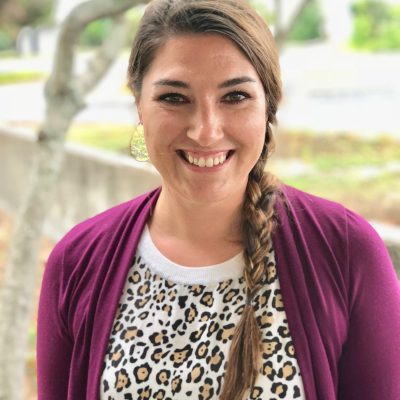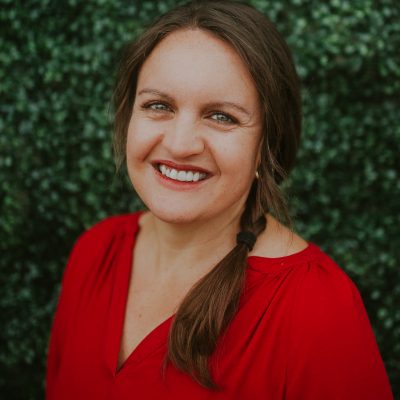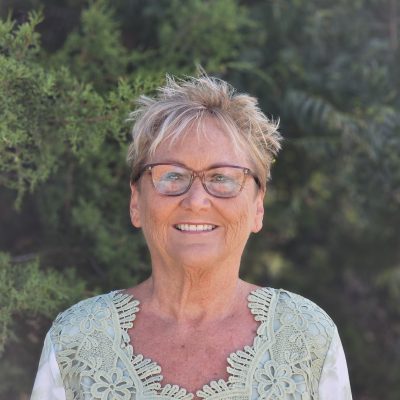School of Rhetoric
The Rhetoric School serves not as the end goal for our students, but as a pivotal stage in their lifelong journey toward a love of learning, the development of wisdom and eloquence, and the exploration of life's most significant questions.
Expanding upon the foundations laid during the Grammar and Logic stages, students at Valor Preparatory Academy in Waco, Texas, mature into intentional critical thinkers. They are now prepared to direct their attention toward the art of compelling and proficient expression, both in written and spoken form. Our dedicated School of Rhetoric educators encourage students to delve into their intellectual and spiritual heritage by engaging with the profound works and influential figures of Western Civilization. Our curriculum is thoughtfully crafted to incorporate knowledge from diverse disciplines, fostering not only creative thinking but also profound reflection on the Christian worldview and its impact on our understanding of the world.
Curriculum

At Valor Preparatory Academy, the Humanities Department is dedicated to nurturing an appreciation for the true, good, and beautiful through the study of composition, languages, history, philosophy, and literature. Our goal is to prepare our students, in alignment with the scriptural call to spread the gospel of Jesus Christ, by providing them with a strong foundation in global history and compelling narratives. This education equips them to express their Christian worldview effectively in both written and oral forms while also enabling them to critically analyze how their worldview influences their interpretation of the world, both past and present. Through an integrated approach to history and literature, grounded in the Great Conversation, students engage with profound ideas from throughout human history and understand their far-reaching impact on individuals and societies. All of this is framed within a biblical Christian worldview, helping students recognize God’s providence throughout human history and guiding them in aligning every thought, idea, philosophy, and worldview with Christ.
In the realm of mathematics, our focus extends beyond mere efficiency and precision in problem-solving. We emphasize cultivating a profound understanding of mathematical concepts and nurturing the ability to think critically in mathematical terms. Our math program is designed to ignite a passion for mathematics in every student. We view mathematics not only as a potent tool for comprehending the intricacies of our world but also as a beautifully intricate creation by God Himself. Your child will not only have the opportunity to master problem-solving but also to develop a genuine affection for mathematics. Through our program, all students gain a deep appreciation for the power and elegance inherent in mathematics, equipping them to tackle both theoretical challenges and real-world problems with confidence.
In the realm of science at Valor Preparatory Academy, our mission is to explore, comprehend, and marvel at the magnificent display of God’s glory evident in His splendid, harmonious, and meticulously designed creation. Our science curriculum is carefully crafted to impart essential skills and methodologies essential for scientific inquiry, encompassing a range of disciplines including Biology, Chemistry, Physics, and other specialized fields. Ultimately, Valor students are equipped to approach the sciences as interconnected facets of a comprehensive exploration of God’s holistic masterpiece.
Spanish
In Matthew 28, Jesus instructed His disciples to go and make disciples of all nations, encompassing every people group on Earth. This command remains as relevant today as it was then. Learning Spanish transcends mere utility for vacations; it becomes a gateway to connect with a diverse world and share the message of life with those who might otherwise remain isolated from relationship and the gospel. Proficiency in Spanish opens doors to one-sixth of the world’s population, allowing for meaningful relationships and gospel outreach that language barriers would otherwise hinder.
Latin
At Valor Preparatory Academy, Latin is the study of an inflected, ancient, and immortal language beneficial for formation, communication, and delight. It is not primarily about acquiring a “useful” language, but rather endeavors to train the mind and memory toward order and detail. Latin scholars possess a keen understanding of grammatical structures, and develop an awareness of the logic within language which carries over to an increased facility with analysis, debate, and problem solving. Requiring students to engage with formative ideas from Western civilization’s most brilliant minds in their untranslated language of origin, allows students to assume the posture of a traveler in foreign lands, one of humility, deference, and curiosity. Nevile Gwynne, a British writer and businessman who was a student at both Eton and Oxford, once said, “Latin provides a training and development of the mind and character to a degree of excellence that no other mental or physical activity can come anywhere near to bringing about.”
At Valor Preparatory Academy, the School of Logic lays the essential groundwork of biblical literacy, focusing on both the Old and New Testaments. Subsequently, the Rhetoric School constructs a steadfast and intellectual framework upon this solid foundation. Our overarching mission at Valor is to cultivate fervent disciples of Jesus who embody the values of truth, goodness, and beauty, and who are fully equipped to courageously impact culture for Christ. We firmly believe that students whose hearts and intellects are immersed in God’s Word and the Christian worldview are best prepared to be influential cultural ambassadors for the glory of God.
Rhetoric, representing the pinnacle of the classical trivium, is the art of effectively employing available means of persuasion, both in spoken and written form, while infusing one’s distinctive style. This comprehensive three-year course of study revolves around a fundamental question: “What renders individuals persuadable?” Although it is omnipresent, the art of rhetoric is regrettably underemphasized in modern educational contexts, yet it remains the linchpin of classical education. Augustine’s assertion that one must “speak eloquently as well as wisely” underscores the critical role of rhetoric. Even when students have mastered other disciplines, without rhetoric, they lack the means to communicate effectively and put their knowledge into practice. Rhetoric’s value lies in its capacity to equip students with the skills to respond, defend, and create. It enhances their ability to discern the persuasive strategies of others, uphold truth, and craft compelling compositions that aim to edify one another—the ultimate purpose of all rhetoric.
Clear communication stands as a central tenet of Valor’s educational philosophy across all subject areas. Our world languages curriculum, particularly Latin, aligns with our mission to equip students to positively impact culture for God’s glory. Mastery of Latin serves as a gateway to understanding multiple languages, offering students foundational insights into the mechanics of language itself. Latin not only facilitates the learning of modern Romance languages but also enriches students’ grasp of English vocabulary and sentence structure. A significant portion of English’s polysyllabic words have Latin origins, and our Latin curriculum is carefully designed to enhance English vocabulary. At Valor, students are actively engaged in the grand discourse of Western Civilization and global culture, and a key component of this engagement is the enriching study of Latin.
Senior Thesis
Parent Partnership
As students enter into the 9th-12th grade, more responsibility is placed on the student for his/her learning and planning.. In the earlier years (9th-10th), parents assume the role of “course monitors,” maintaining a watchful eye on their child’s study habits and course progress. However, it’s essential that neither the student nor the classroom teacher becomes overly dependent on this oversight. By the 11th and 12th grades, parents take a step back from regular oversight and are no longer required to be closely involved in day-to-day activities. Instead, their involvement primarily centers around assisting the student with special projects when needed.
At this stage, parents have greater freedom to engage with their child in ways that foster “interactive discussion and discipleship.” While they are not actively overseeing the student’s learning, they are encouraged and equipped to ask probing questions related to life’s profound inquiries. The primary aim of these conversations is not just academic learning but also the cultivation of enduring, meaningful relationships between parent and student.
Precise definitions of the various parental roles as their student progresses can be found in the Valor Parent & Student Handbook.
Class Trips
Humanities Reading List
- Robinson Crusoe
- Pilgrim’s Progress (Bunyan)
- American Poetry: Anne Bradstreet & Michael Wigglesworth
- Paradise Lost: Book 1, 2, 3, 4 & 12
- Gulliver’s Travels: Part 1 & 2 (Lilliput and Brobdingnag)
- Romantic Poetry (Wordsworth, Shelley, Coleridge, Keats)
- Pride and Prejudice (Austen)
- Frankenstein (Shelley)
- The Odyssey
- William Cowper Poetry
- The Autobiography of Benjamin Franklin
- The Strange Case of Dr Jekyll and Mr Hyde (Stevenson)
- The Adventures of Huckleberry Finn (Twain)
- The Scarlet Letter (Hawthorne)
- Uncle Tom’s Cabin (Stowe)
- Jane Eyre (Brönte)
- Great Expectations (Dickens)
- The Importance of Being Earnest (Wilde)
- The Norton Anthology of American Literature
- The Norton Anthology of English Literature
- Narrative of the Life of Frederick Douglass
- Red Badge of Courage
- Plato’s Allegory of the Cave
- Cicero – Catiline Orations
- Plato – Phaedrus
- The Outsiders (Hinton)
- Murder on the Orient Express (Cristie)
- The Great Gatsby (Fitzgerald)
- Passing (Larsen)
- Death of a Salesman (Miller)
- To Kill a Mockingbird (Harper Lee)
- The Complete Stories (Flannery O’Connor)
- Jayber Crow (Wendell Berry)
- A Room With A View (Forster)
- Augustine Book X of Confessions
- Pericles’ Funeral Oration
- Aquinas Summa Theologica Excerpt
- The Crucible (Miller)
- The Aeneid (Fagles English translation)
- The Abolition of Man
- Hamlet
- Paradise Lost (unabridged)
- The Brothers Karamosov (Dostoyevsky)
- The Norton Anthology of Poetry (6th ed.)
- Four Texts on Socrates: Plato’s Euthyphro, Apology, Crito, Aristophanes’ Clouds
- The Prince by Machiavelli
- The Republic -Plato
- Politics (entire) & Nicomachean Ethics (selections) – Aristotle
- Summa Theologica by Thomas Aquinas (selections-natural law)
- Economics in One Lesson by Henry Hazlitt, Basic Economics by Thomas Sowell
Schedule
Monday through Thursday, 8:15 a.m. to 1:25 p.m.
Optional Scholar’s Lounge 1:30 p.m. to 3:30 p.m.
Friday, 8:15 a.m. through 12:00 p.m.
Optional Scholars’ Lounge 12:05 p.m. through 3:30 p.m.



















